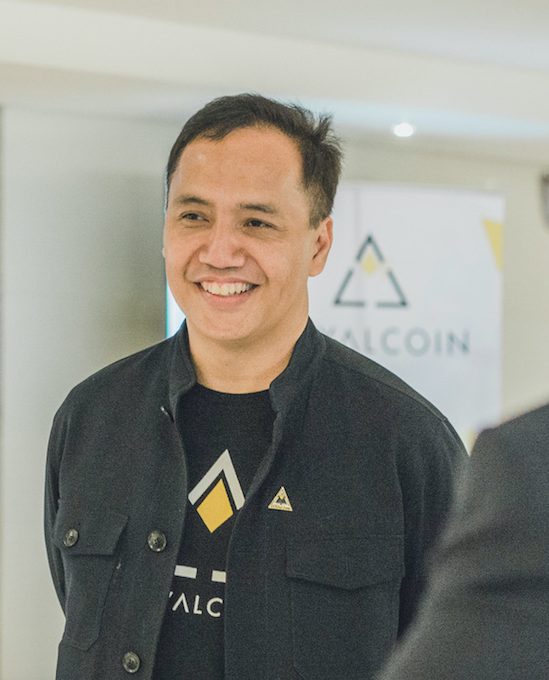The Philippines currently has one of the fastest-growing crypto communities in the world thanks to the need for large numbers of expats to easily transfer money back to relatives at home.
Its government has been encouraging growth of the emerging technology, and now the Securities and Exchange Commission (SEC) is introducing a regulatory framework to govern transactions. Legislation emphasises the need for rules to control ICOs — companies using the sale of tokens or digital currency as a method of raising funds. In the past, these have been a tool used by scammers to flood the market with tokens, before disappearing once investors have parted company with their money.
 Patrick Palacios, founder and CEO of Philippine-based LoyalCoin and Appsolutely, has backed the tighter regulation, and urged other countries to follow suit. “These new rules mean the burden of proving the legitimacy of ICO tokens will be put in the hands of the issuer, and they will otherwise be deemed otherwise,” he said. “This is a benchmark fro the regulation of cryptocurrency. Beforehand, allowing certain kinds of behaviour without regulation has put hundreds of thousands of investors at risk.
Patrick Palacios, founder and CEO of Philippine-based LoyalCoin and Appsolutely, has backed the tighter regulation, and urged other countries to follow suit. “These new rules mean the burden of proving the legitimacy of ICO tokens will be put in the hands of the issuer, and they will otherwise be deemed otherwise,” he said. “This is a benchmark fro the regulation of cryptocurrency. Beforehand, allowing certain kinds of behaviour without regulation has put hundreds of thousands of investors at risk.
“From now on, all companies, individuals and businesses starting an initial coin offering in the Philippines will have to register with the SEC first. Prior to this, victims of these scams had little opportunity to pursue their cash once they had been taken advantage of. Now the threat of real consequences for malicious ICOs will deter issuers and give victims more strength to fight back. Now I would urge other countries and regulators to follow suit, and make regulation a truly global thing. South East Asian markets in particular should be following the Philippine model.”
The blockchain-powered LoyalCoin aims to create a global rewards network of retailers, where all loyalty schemes are linked to a single virtual token. Members of this 200,000-strong community can redeem these in places like 7-Eleven and GongCha in the Philippines. SEC chairman Emilio Aquino revealed on Friday that they are ‘are looking at whether or not to allow retail investors to participate’.
He said: “They ask for money but they don’t have a fund. They have to put up a fund first. Eventually, they should also have a platform. We have to look at the platform.” Since his appointment in June, Aquino has been at the forefront of a crackdown on investment scams which utilise digital currency.
LoyalCoin’s Palacios added: “Regulators in the Philippines are aware they have to do two things — protect investors at the same time as facilitating innovation. Banks and financial institutions here have been clear on how favourably they view the potential of cryptocurrency and the blockchain. These steps from the SEC are an example of introducing stricter controls that will not become a hinderance to individuals and businesses in the market for the right reason.”
Global regulation, he says, will also encourage more businesses to start taking the emerging technology seriously. His firm is the first Philippine crypto and it successfully held a token generation event ending in February 2018, producing 9 billion coins. “Regulation will be essential to the adoption of cryptocurrency on a global scale, but authorities shouldn’t be too strict — making sure they allow room for growth and innovation. Some merchants are very wary once they see word cryptocurrency. And that is understandable. It is an alien world to many businesses. But when they see others involved, they begin to appreciate the risks involved are lower than first anticipated. Here, proper education and regulation could prove invaluable.”
He added: “We have experienced some skepticism about the potential in the blockchain and cryptocurrency — but that can soon disappear with the correct education. And once more traditional businesses see proper regulation taking shape, it will also encourage them to embrace the benefits of this technology. The key issues affecting cryptocurrency, like security and volatility, can be rectified through regulation.”
Currently, most of the world’s digital currency industry operates in a legal grey area, as rules can vary wildly from country to country. Japan, for example, has introduced a licensing system for digital-asset exchanges while China has introduced strict rules to crack down on the tech. Digital-asset exchanges and ICOs have been outlawed, and access to overseas trading platforms have been blocked.
Talks have taken place to rectify the lack of global coordination, the Argentina G20 summit and a Europol conference las month being two, though authorities are no closer to coming up with a global plan.




